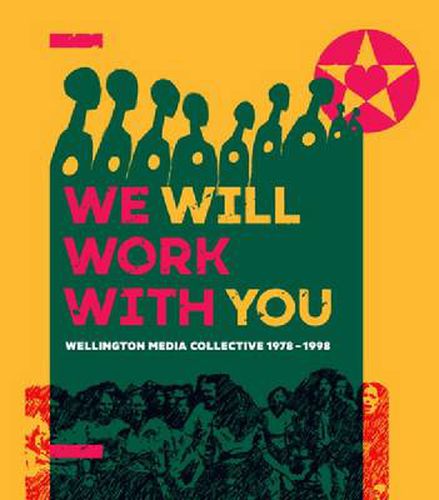Readings Newsletter
Become a Readings Member to make your shopping experience even easier.
Sign in or sign up for free!
You’re not far away from qualifying for FREE standard shipping within Australia
You’ve qualified for FREE standard shipping within Australia
The cart is loading…






We Will Work With You: Wellington Media Collective 1978-1998 tells the story of a group of young Kiwi designers and political activists committed to broadly defined left-wing principles and politics. They never wavered from the mission statement written in 1979: ‘We will work with you, not for you.’ It is this principle of collective action that unfurls down the wall of the gallery. It also unfurls through the pages of this book, in more than 250 examples of WMC’s posters, as well as screen-prints produced with artists and musicians. The social history of the Collective - also a history of extraordinary energy and resilience - is covered in an essay by Mary Ellen O'Connor; Polly Cantlon has written a comprehensive account of the Collective’s design history and its political and theoretical underpinnings. Includes contributions by Jean Clarkson on Sydney’s Tin Sheds, by the Black Panther Party’s Emory Douglas, and by Flor de Lis Lopez Hernandez and Xavier Meade on Cuban and Mexican ‘visual companeros’, locate WMC in an international context.
$9.00 standard shipping within Australia
FREE standard shipping within Australia for orders over $100.00
Express & International shipping calculated at checkout
We Will Work With You: Wellington Media Collective 1978-1998 tells the story of a group of young Kiwi designers and political activists committed to broadly defined left-wing principles and politics. They never wavered from the mission statement written in 1979: ‘We will work with you, not for you.’ It is this principle of collective action that unfurls down the wall of the gallery. It also unfurls through the pages of this book, in more than 250 examples of WMC’s posters, as well as screen-prints produced with artists and musicians. The social history of the Collective - also a history of extraordinary energy and resilience - is covered in an essay by Mary Ellen O'Connor; Polly Cantlon has written a comprehensive account of the Collective’s design history and its political and theoretical underpinnings. Includes contributions by Jean Clarkson on Sydney’s Tin Sheds, by the Black Panther Party’s Emory Douglas, and by Flor de Lis Lopez Hernandez and Xavier Meade on Cuban and Mexican ‘visual companeros’, locate WMC in an international context.